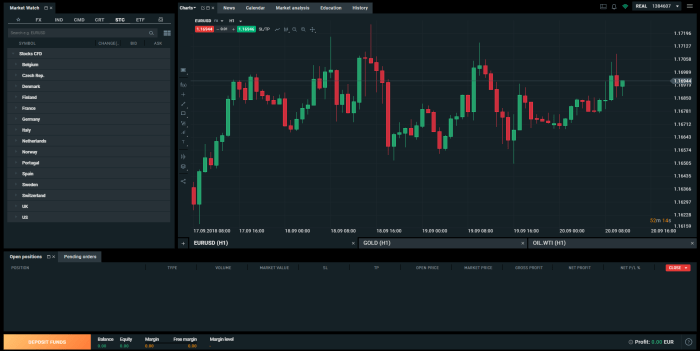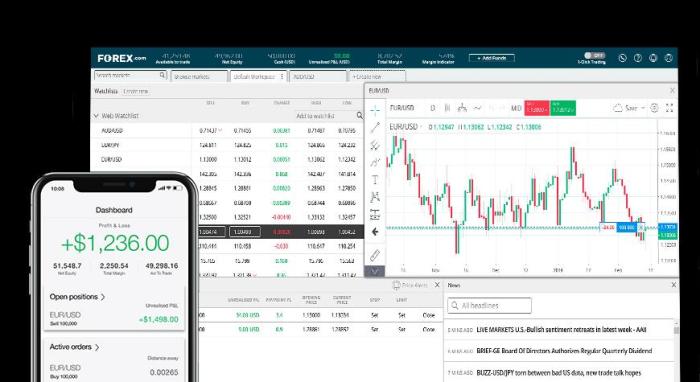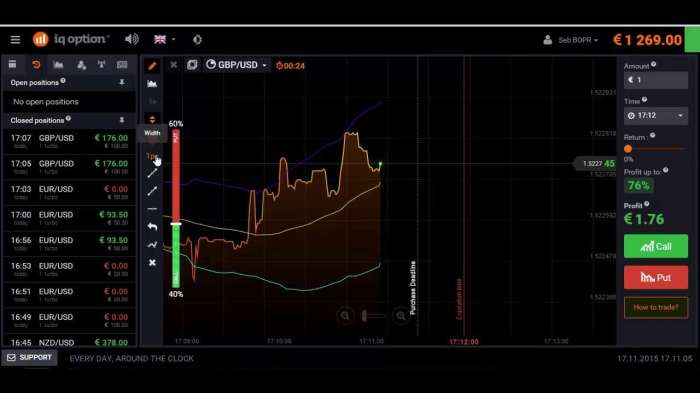
Taxes and forex trading—two words that might send shivers down the spine of even the most seasoned trader. Navigating the complex world of international finance and tax regulations can feel like trying to solve a Rubik’s Cube blindfolded. But fear not! This guide cuts through the jargon, demystifying the tax implications of forex trading, from understanding different tax jurisdictions to optimizing your strategy for maximum profit (and minimal tax burden). We’ll cover everything from record-keeping best practices to leveraging losses, ensuring you’re armed with the knowledge to confidently conquer the tax landscape.
We’ll explore the intricacies of capital gains taxes, currency exchange rate fluctuations, and the impact of various trading account types on your tax liability. Learn how to calculate your taxable income accurately, identify legal tax optimization strategies, and manage currency risk effectively. We’ll also provide practical advice on maintaining meticulous records, choosing the right trading account structure, and understanding the rules for deducting losses. Get ready to level up your trading game – and your tax strategy.
Tax Implications of Forex Trading
Navigating the world of forex trading can be thrilling, but understanding the tax implications is crucial to avoid unpleasant surprises. Profits from currency trading aren’t invisible to tax authorities; they’re considered taxable income in most jurisdictions, and the specifics can vary widely. Let’s break down the complexities.
Types of Taxes Applicable to Forex Trading Profits
The type of tax applied to forex trading profits depends largely on your residency and the specific regulations of your tax jurisdiction. Commonly, forex trading income is taxed as either capital gains or ordinary income. Capital gains taxes typically apply to long-term investments, while ordinary income taxes apply to short-term trading activities. Some countries may also levy transaction taxes or stamp duties on forex trades. The classification of your trading activity as short-term or long-term can significantly influence your tax liability. For example, a trader holding a currency pair for less than a year might face ordinary income tax rates, whereas a trader holding the same pair for longer might qualify for lower capital gains rates. This classification is crucial for accurate tax calculation.
Tax Reporting Requirements for Forex Trading Income
Reporting requirements for forex trading income vary considerably across different countries. Generally, you’ll need to report your trading profits and losses on your annual tax return. This often involves providing detailed records of your trades, including dates, currency pairs traded, amounts involved, and the resulting profit or loss. Some jurisdictions may require specific forms or schedules to be completed. Failing to accurately report your forex trading income can result in significant penalties and interest charges. Maintaining meticulous records is paramount. This includes keeping track of all trading transactions, brokerage statements, and any supporting documentation related to your forex trading activities.
Calculating Taxable Income from Forex Trading
Calculating taxable income from forex trading involves determining your net profit or loss for the tax year. This is done by subtracting your total expenses (brokerage fees, software costs, etc.) from your total trading profits. The resulting figure is then subject to the applicable tax rates in your jurisdiction.
Let’s illustrate with an example. Suppose a trader in the US made $10,000 in profits from forex trading in a year, but incurred $1,000 in expenses. Their taxable income would be $9,000 ($10,000 – $1,000). The tax owed would then be calculated based on their individual tax bracket and the applicable capital gains or ordinary income tax rates. The complexity increases with different trading strategies. For instance, day trading often involves more frequent transactions and might lead to higher tax burdens compared to long-term swing trading.
Comparison of Forex Trading Tax Regulations Across Countries, Taxes and forex trading
Tax regulations for forex trading vary significantly across different countries. The following table provides a simplified comparison; however, it’s crucial to consult with a qualified tax professional for specific guidance.
| Country | Tax Rate | Reporting Requirements | Specific Regulations |
|---|---|---|---|
| United States | Varies based on income bracket and short-term/long-term capital gains rates. | Report on Schedule D (Form 1040). Detailed records of trades required. | Taxation depends on holding period and trading frequency. |
| United Kingdom | Income tax rates apply to profits. | Report on Self Assessment tax return. Records of transactions needed. | Capital Gains Tax may apply to long-term holdings. |
| Canada | Taxed as business income if considered a business; otherwise, capital gains tax applies. | Report on T1 General Income Tax and Benefit Return. Detailed records of trades are essential. | Specific rules apply depending on whether forex trading is considered a business or investment activity. |
| Australia | Taxed as ordinary income if considered a business; otherwise, capital gains tax applies. | Report on your annual tax return. Keep thorough records of all trades. | Complex rules exist regarding the definition of a business versus an investment activity. |
Currency Exchange Rate Fluctuations and Tax Liability
Navigating the world of forex trading involves more than just predicting market movements; understanding the tax implications of fluctuating exchange rates is crucial. Your profits and losses aren’t simply calculated based on the initial and final trade prices. The ever-shifting landscape of currency values significantly impacts how your gains and losses are assessed for tax purposes. This means a deep dive into how these fluctuations affect your cost basis is essential for accurate tax reporting.
The impact of currency exchange rate fluctuations on your tax liability is significant because it directly affects the calculation of your capital gains or losses. Your taxable profit or loss isn’t solely determined by the difference between your buy and sell prices in your local currency. The conversion of foreign currency transactions into your domestic currency introduces an extra layer of complexity. This necessitates a careful accounting of exchange rates at the time of each transaction to accurately determine your profit or loss in your home currency.
Cost Basis Determination for Currency Pairs
Determining the cost basis of currency pairs for tax purposes requires meticulous record-keeping. The cost basis represents the original value of your investment, which is then used to calculate your capital gain or loss upon selling. For forex trades, this isn’t simply the amount you initially invested in the base currency. Instead, it’s the equivalent value of your investment in your domestic currency at the time of purchase, considering the prevailing exchange rate. Subsequently, when you sell, the selling price needs to be converted back to your domestic currency using the exchange rate at the time of sale. The difference between these two converted values determines your capital gain or loss.
Illustrative Scenario: Exchange Rate Impact on Tax Liability
Let’s say you’re a US-based trader and you bought 10,000 Euros at an exchange rate of 1 EUR = $1.10 USD. Your initial investment in USD would be $11,000. Later, you sell those 10,000 Euros when the exchange rate is 1 EUR = $1.15 USD. Your proceeds in USD would be $11,500. Your apparent profit is $500. However, for tax purposes, this $500 needs to be considered within the context of any applicable fees and commissions.
Let’s add a layer of complexity. Suppose you incurred a brokerage fee of $20 for each transaction (buying and selling). This means your total fees are $40. Your net profit in USD becomes $460. This is the amount that will be subject to capital gains tax in the US. If the exchange rate had moved against you, resulting in a lower USD value upon sale, you would have a capital loss, which could potentially be used to offset other capital gains.
Best Practices for Managing Currency Risk and Minimizing Tax Implications
Effective currency risk management is paramount to minimize adverse tax consequences. Maintaining detailed and accurate records of all transactions, including the exact exchange rates at the time of each trade, is essential. Utilizing specialized forex accounting software can significantly streamline this process. Consider consulting with a tax professional specializing in forex trading to ensure compliance with all relevant tax regulations. This professional guidance can help you navigate the complexities of currency exchange rate fluctuations and optimize your tax strategy. Furthermore, employing hedging strategies can help mitigate currency risk and potentially reduce the volatility of your taxable income.
Tax Optimization Strategies for Forex Traders
Navigating the complex world of forex trading involves more than just predicting currency fluctuations; it also requires a savvy understanding of tax implications. Smart tax planning isn’t about avoiding taxes altogether—it’s about legally minimizing your tax burden and maximizing your after-tax profits. This section explores legitimate strategies to help forex traders keep more of their hard-earned gains.
Tax optimization for forex traders hinges on understanding the differences between short-term and long-term capital gains, utilizing appropriate investment accounts, and meticulously documenting all transactions. Remember, consulting with a qualified tax professional is crucial to personalize your strategy and ensure compliance with all applicable regulations.
Tax-Advantaged Investment Accounts
Several investment accounts offer tax advantages that can significantly benefit forex traders. These accounts often allow for tax-deferred growth or reduced tax rates on profits, depending on the specific account type and the trader’s circumstances. Choosing the right account can make a substantial difference in your overall tax liability.
Comparing Tax Planning Approaches for Long-Term and Short-Term Trading
Long-term forex trading (holding positions for over one year) typically results in lower capital gains tax rates compared to short-term trading (holding positions for one year or less). Short-term gains are taxed at your ordinary income tax rate, which can be significantly higher. Long-term gains, on the other hand, are taxed at preferential capital gains rates. This difference underscores the importance of aligning your trading strategy with your tax objectives. For example, a trader aiming for long-term growth might prioritize holding positions longer to benefit from the lower tax rates associated with long-term capital gains. Conversely, a day trader would need to focus on strategies that minimize their short-term capital gains tax burden.
Actionable Steps to Reduce Tax Burden
Careful record-keeping is paramount. The IRS requires detailed records of all forex transactions, including dates, amounts, currency pairs traded, and profits or losses. Failing to maintain accurate records can lead to significant penalties.
- Maintain meticulous transaction records. This includes trade confirmations, brokerage statements, and any other relevant documentation.
- Understand the difference between short-term and long-term capital gains and structure your trading strategy accordingly.
- Explore the use of tax-advantaged investment accounts, such as a Roth IRA (if eligible) to potentially reduce future tax liability on investment growth. Note that specific eligibility requirements and contribution limits apply.
- Consider consulting with a qualified tax advisor specializing in forex trading. They can provide personalized guidance based on your individual circumstances and trading strategy.
- Offset capital gains with capital losses. If you experience losses in forex trading, you can use them to offset gains, potentially reducing your overall tax liability. However, there are limitations on the amount of losses you can deduct in a given year.
Record Keeping and Documentation for Forex Tax Purposes
Navigating the tax implications of forex trading can feel like traversing a complex maze. However, meticulous record-keeping is your compass and map, guiding you through the intricacies and helping you avoid costly mistakes. Maintaining comprehensive records isn’t just about complying with tax laws; it’s about protecting your financial well-being and ensuring a smooth tax season.
Accurate and organized record-keeping is paramount for forex traders. The IRS expects detailed documentation of your trading activities, and failure to provide this can lead to significant penalties, including audits and back taxes. This section will Artikel the essential records you need to keep and explain how to manage them effectively.
Essential Forex Trading Records
Maintaining detailed records is crucial for accurate tax reporting. The following table Artikels the key record types, descriptions, retention periods, and examples. Remember to store these records securely, both physically and digitally.
| Record Type | Description | Retention Period | Example |
|---|---|---|---|
| Brokerage Statements | Monthly or quarterly statements from your forex broker detailing all transactions, including buy/sell orders, fees, and realized gains/losses. | Indefinitely | A statement showing the purchase of 10,000 EUR/USD at 1.1000 on January 15th, 2024, and its subsequent sale on February 10th, 2024, at 1.1200, with associated commissions and fees clearly listed. |
| Trade Confirmation Statements | Individual confirmations for each trade executed, providing details like trade date, time, currency pair, quantity, and price. | Indefinitely | A digital or paper confirmation for a specific trade, mirroring the information found on the brokerage statement but providing a more granular level of detail for that single transaction. |
| Transaction Records | Detailed records of all forex transactions, including date, time, currency pair, buy/sell order, quantity, exchange rate, fees, and any other relevant information. This can be a spreadsheet or a dedicated forex trading journal. | Indefinitely | A spreadsheet with columns for Date, Time, Currency Pair, Action (Buy/Sell), Quantity, Entry Price, Exit Price, Fees, Profit/Loss, and any notes. |
| Account Statements | Periodic statements showing the overall balance of your forex trading account, including deposits, withdrawals, and net profit/loss. | Indefinitely | A monthly statement showing the beginning balance, all deposits and withdrawals, trading activity summary, and ending balance. |
The Importance of Accurate Record Keeping
Accurate and organized record-keeping is your best defense against tax audits. It allows you to quickly and easily provide the IRS with the necessary documentation to support your tax return, minimizing the risk of penalties and interest charges. Furthermore, well-maintained records offer a clear picture of your trading performance, helping you track profitability, identify areas for improvement, and make informed trading decisions.
Implications of Inadequate Record Keeping
Inadequate record-keeping can have serious consequences for forex traders. The IRS may disallow deductions, impose penalties, and initiate a full-scale audit, potentially leading to significant financial liabilities. In extreme cases, it could even result in legal action. The burden of proof rests with the taxpayer to demonstrate the accuracy of their tax return; without proper documentation, this becomes nearly impossible.
Software and Methods for Efficient Forex Record Management
Several software solutions and methods can streamline forex trading record management. Dedicated forex accounting software packages automate many aspects of record-keeping, while spreadsheet software like Microsoft Excel or Google Sheets can be used to create customized tracking systems. Many forex brokers also offer downloadable transaction history in various formats (CSV, XLS, etc.) that can be easily imported into such software. The key is to choose a method that suits your needs and ensures data accuracy and security. Consider cloud-based solutions for secure backup and accessibility from multiple devices.
The Impact of Different Trading Accounts on Tax Liability
Navigating the tax landscape of forex trading can be complex, especially when considering the various account types available. The legal structure you choose – individual, joint, or corporate – significantly impacts how your profits are taxed and what deductions you can claim. Understanding these differences is crucial for minimizing your tax burden and ensuring compliance.
The legal structure of your trading entity directly influences your tax liability. Individual traders face different tax rules than those operating through partnerships or corporations. This impacts not only the tax rate applied to your profits but also the types of deductions and credits available. Let’s delve into the specifics of each account type to illuminate the nuances.
Tax Implications of Individual Trading Accounts
Individual traders report their forex trading profits and losses on their personal income tax returns. This means profits are taxed at your individual income tax rate, which can vary significantly depending on your overall income. While this simplicity is attractive, it also means your forex trading income is combined with other sources of income, potentially pushing you into a higher tax bracket. Deductions for trading-related expenses, such as software subscriptions, educational courses, and home office expenses (if applicable and meeting IRS criteria), can help offset some of this liability. For example, if an individual trader earned $20,000 in forex profits and had $5,000 in deductible expenses, their taxable income would be $15,000, taxed at their individual rate.
Tax Implications of Joint Trading Accounts
Joint accounts, often held by married couples, share the responsibility of reporting forex trading income and expenses. The profits and losses are generally split equally between the account holders, and each individual reports their share on their personal tax returns. This approach can offer some tax advantages if one spouse has a lower income tax bracket than the other, potentially reducing the overall tax burden. However, both individuals are jointly liable for any tax debts incurred. For example, if a couple earned $30,000 in forex profits and had $7,000 in deductible expenses, each spouse would report $11,500 in taxable income ($23,000/2).
Tax Implications of Corporate Trading Accounts
Operating as a corporation (e.g., S-corp or LLC) separates your forex trading activities from your personal finances. Profits are taxed at the corporate tax rate, which is generally lower than the highest individual income tax brackets. However, you’ll also face double taxation: the corporation pays taxes on its profits, and you pay taxes again on any dividends distributed to you. This structure offers liability protection, shielding your personal assets from business debts. While potentially more complex to manage, the corporate structure can offer significant long-term tax advantages for high-earning traders. Consider a hypothetical scenario where a corporation earns $50,000 in forex profits after expenses. The corporation pays taxes at the corporate rate, and then the owner pays taxes on any distributed profits as dividends.
Choosing the Right Account Structure: A Comparative Overview
The optimal account structure depends heavily on individual circumstances, including income level, risk tolerance, and long-term financial goals.
| Account Type | Tax Advantages | Tax Disadvantages | Liability Protection |
|---|---|---|---|
| Individual | Simplicity, potential deductions | Taxed at individual income rate, income combined with other sources | None |
| Joint | Potential for lower overall tax burden if income brackets differ | Joint liability for tax debts | None |
| Corporate (e.g., S-corp, LLC) | Lower corporate tax rate (potentially), liability protection | Double taxation (corporate and individual), increased administrative complexity | Significant |
It’s crucial to consult with a qualified tax professional to determine the most suitable account structure for your specific situation. Tax laws are complex and can change, so personalized advice is essential for compliance and tax optimization.
Tax Implications of Forex Trading Losses
Navigating the world of forex trading involves understanding not just the potential for profit, but also the reality of potential losses. Knowing how to handle these losses from a tax perspective is crucial for minimizing your tax liability and ensuring you’re complying with all regulations. This section delves into the intricacies of deducting forex trading losses, outlining the rules, limitations, and practical examples to help you navigate this often-complex area.
Forex trading losses, unlike many other types of losses, can offer a significant tax advantage. In many jurisdictions, these losses can be used to offset gains from other investments or even your ordinary income, thereby reducing your overall tax burden. However, there are specific rules and limitations that govern how and when these losses can be claimed. Understanding these rules is essential to maximizing your tax benefits.
Offsetting Forex Losses Against Other Income
Forex trading losses can often be used to offset gains from other investments, such as stocks or bonds. This is because forex trading is generally considered a capital gains activity. The specific rules governing this offsetting will vary depending on your tax jurisdiction. For example, in some countries, you might be able to deduct capital losses against capital gains in the same tax year. In others, you may be able to carry forward losses to offset future gains. It’s vital to consult your tax advisor or relevant tax authority guidelines for precise details pertaining to your location. Failure to do so could result in missed opportunities for tax optimization.
Rules and Limitations on Deducting Forex Trading Losses
Several rules and limitations restrict the deduction of forex trading losses. Firstly, accurate record-keeping is paramount. You must meticulously document all your trades, including dates, amounts, and currency pairs involved. Secondly, many jurisdictions limit the amount of losses you can deduct in a given tax year. This limit might be tied to your overall income or the amount of capital gains you’ve realized. Furthermore, some countries may require you to categorize your losses as either short-term or long-term capital losses, with different rules applying to each. Finally, losses from personal forex trading activities are typically treated differently than those from professional or business-related trading. Understanding these distinctions is crucial for accurate tax reporting.
Examples of Tax Liability Reduction Using Forex Losses
Let’s consider two scenarios to illustrate how forex trading losses can reduce tax liability.
Scenario 1: Imagine you made $10,000 in capital gains from stock investments and incurred a $5,000 loss from forex trading in the same tax year. Assuming your jurisdiction allows for the direct offsetting of capital losses against capital gains, your net capital gain would be reduced to $5,000, resulting in a lower tax liability compared to reporting only the stock gains.
Scenario 2: Suppose you had a $3,000 loss from forex trading and your taxable income from other sources is $50,000. Depending on the applicable rules, you might be able to deduct a portion or all of this loss against your ordinary income, potentially lowering your overall tax bracket and reducing your total tax bill. However, this will depend on specific rules and regulations in your tax jurisdiction.
Claiming Forex Trading Losses on Tax Returns
Claiming forex trading losses requires a systematic approach.
1. Gather all necessary documentation: This includes trade statements from your broker, bank statements, and any other records that substantiate your forex trading activities and losses.
2. Calculate your net capital losses: Subtract your total forex trading losses from your total forex trading gains.
3. Determine the allowable deduction: Check your jurisdiction’s regulations to determine the amount of losses you can deduct in the current tax year and whether you can carry forward any excess losses to future years.
4. Complete the relevant tax forms: Use the appropriate tax forms in your jurisdiction to report your forex trading activities and losses. These forms will vary depending on your country’s tax system.
5. File your tax return: Submit your completed tax return by the deadline to avoid penalties. Consider seeking professional tax advice if you’re unsure about any aspect of the process. Accurate and timely filing is crucial to avoid potential complications.
Closing Summary: Taxes And Forex Trading

Mastering forex trading isn’t just about hitting those winning trades; it’s about understanding the entire financial picture, including the tax implications. By understanding the nuances of tax laws and employing effective strategies, you can significantly reduce your tax burden and maximize your long-term profitability. Remember, proper record-keeping is your best defense against audits, and proactive tax planning can pave the way for a more financially secure future. So, stay informed, stay organized, and stay ahead of the curve – your wallet will thank you.
Learn about more about the process of forex trading academy near me in the field.
Investigate the pros of accepting forex system trading in your business strategies.




